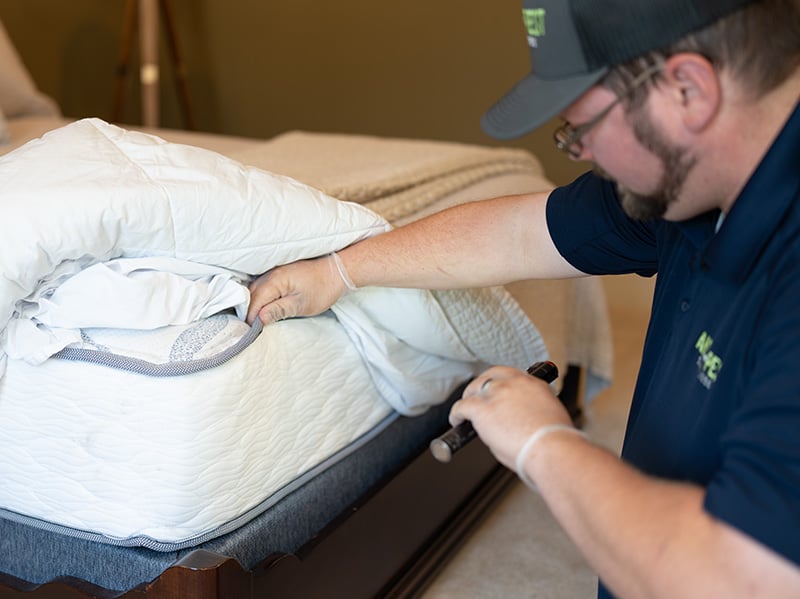In the bustling world of hospitality, maintaining a pristine environment is paramount. An often overlooked yet crucial aspect is pest awareness. Guests expect a comfortable stay, free from uninvited critters. But how often hotels should train staff for pest awareness to ensure this standard? This question is not merely about frequency; it's about embedding a culture of vigilance that can protect the reputation and hygiene of hotels.
Training frequency must be strategic. It must align with the hotels size, location, and the types of pests prevalent in the area. Regular training sessions, such as quarterly workshops, can help staff stay alert and knowledgeable about pest control techniques and signs of infestations. This approach ensures that every team member, from housekeeping to management, is equipped to identify and address potential pest issues promptly.

Why Pest Awareness is Essential in Hotels
Hotels are dynamic environments with a constant flow of guests, staff, and deliveries. This bustling activity creates numerous opportunities for pests to infiltrate. Once inside, pests can cause significant damage, leading to expensive repairs and potentially harming the hotels reputation. According to a study by the Ecolab, pest sightings can drastically affect guest satisfaction and online reviews.
Moreover, pests pose health risks, carrying diseases that can affect both guests and staff. Thus, it's imperative for hotels to implement robust pest management strategies. Part of this strategy involves regular training to ensure staff are aware of the potential risks and how to mitigate them.
Key Components of Effective Training
Understanding the Local Pest Landscape
Training should begin with educating staff about the specific pests prevalent in the hotels location. Whether its bedbugs, rodents, or cockroaches, knowing which pests are likely to be encountered helps in tailoring the training to be as effective as possible. Best pest monitoring devices can greatly assist in identifying problem areas.
Identifying Signs of Infestation
Staff should be trained to recognize the early signs of pest infestations. This includes spotting droppings, gnaw marks, or unusual odors. Early detection is key to preventing a minor issue from becoming a major problem. Regularly updating this knowledge ensures that staff can act quickly and efficiently.
Effective Reporting and Response Procedures
Once a pest is detected, having a clear reporting and response protocol is essential. Staff should know who to notify and what steps to take immediately. This rapid response can limit the spread of pests and reduce the potential damage they can cause. Responding to pest sightings effectively requires clear communication channels and well-defined roles.
Integrating Technology and Training
Incorporating technology into pest management can enhance training effectiveness. Digital tools and apps can help staff track pest sightings and monitor progress. For instance, digital pest monitoring systems provide real-time data on pest activity, allowing for timely interventions. As digital pest monitoring grows in popularity, it becomes an integral part of modern pest awareness training.
Regular Refresher Courses
Even with initial training, regular refreshers are necessary to maintain a high level of awareness among hotel staff. These sessions can be scheduled bi-annually to keep everyone updated on the latest pest control methods and technologies. This continuous learning approach helps in adapting to new pest threats and ensures the entire team is aligned with the hotels pest management objectives.
Conclusion
The frequency of training on pest awareness is not a one-size-fits-all solution. It requires a tailored approach that considers the unique circumstances of each hotel. By implementing regular training sessions, staying informed about local pests, and leveraging technology, hotels can effectively manage pest risks. This not only protects their reputation but also ensures a safe and pleasant environment for all guests and staff.
For more insights into pest control and hotel management, you can explore the extensive resources available at Clairvoyant UAE. Understanding the costs involved can also aid in budget planning, as detailed in this cost analysis.

FAQs
How do pests impact hotel reviews?
Pests can significantly affect hotel reviews as guests often share their experiences online. Negative reviews can lead to a decrease in bookings. For more on this, you can read about hotel reviews impacted by pest complaints.
What are the benefits of digital pest monitoring?
Digital pest monitoring offers real-time data and early detection, allowing for quicker responses. This technology enhances traditional pest control methods and improves overall efficiency.
How often should pest awareness training be conducted?
Pest awareness training should ideally be conducted quarterly, with additional refreshers as needed. This frequency ensures that all staff members remain informed and vigilant.
